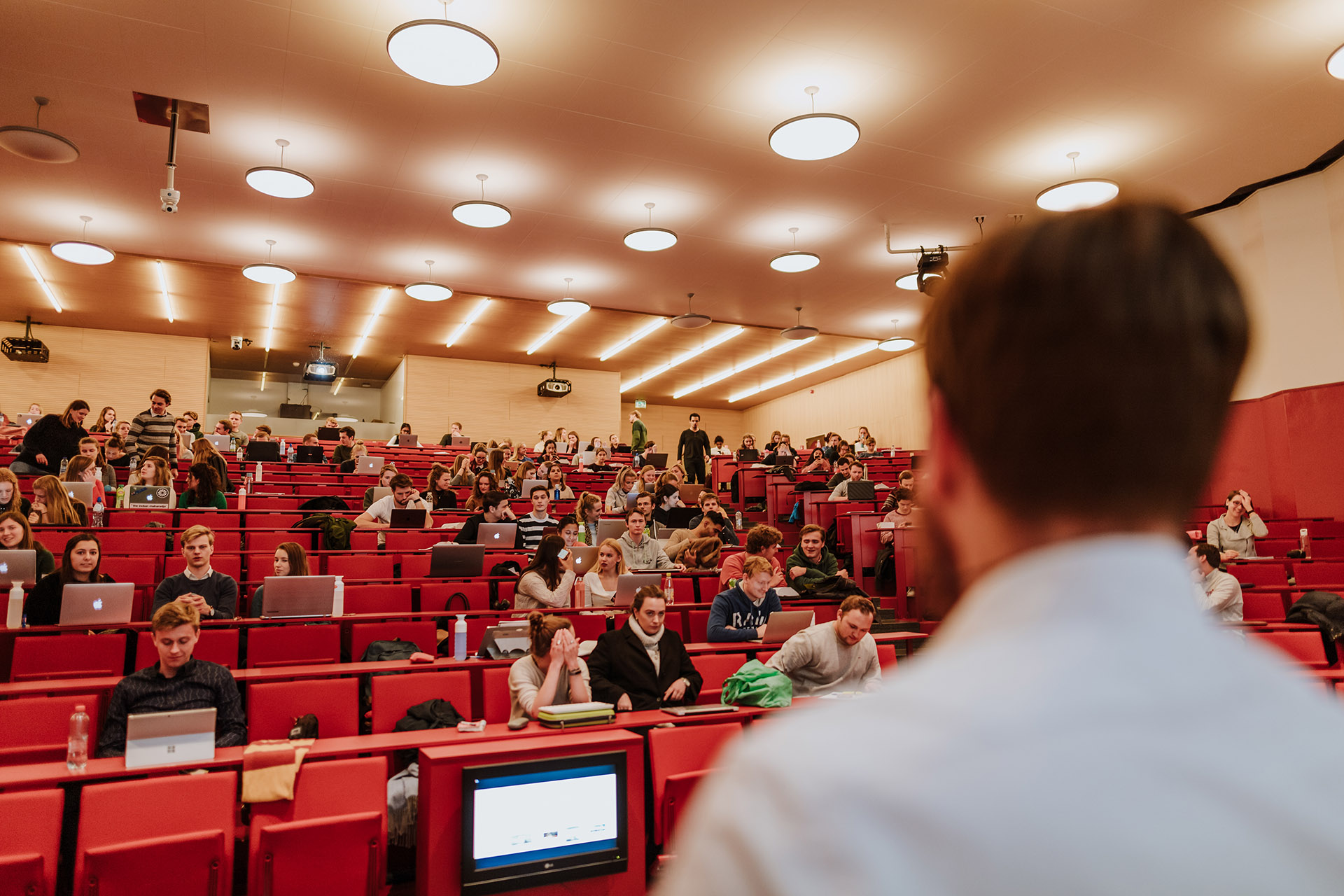Special needs students at the Faculty of Behavioural and Social Sciences (BSS) no longer get immediate access to recorded lectures. And that, they say, is ableist.
Irene has mobility issues which makes it hard for her to walk long distances, let alone bike. Sitting in uncomfortable chairs for too long causes her physical pain. In combination with her ADHD, this means she has a hard time concentrating. She’s also immunocompromised, which means she’s much more likely to get sick for a long period when there’s a flu going around.
Because of this, she can only physically attend around 20 percent of her psychology lectures. Online education during the Covid pandemic was very convenient for her, but now that her professors require physical attendance again, she struggles to keep up with her studies.
Two weeks beforehand
What makes things worse for her is that BSS recently changed its policy on providing recorded lectures to students with special needs. Irene used to be able to access the recordings after each lecture as an extra amenity, but now they only become available to all students two weeks before the exams.
‘That means I don’t know what the professor deems important in the readings’, Irene says. She struggles to process overwhelming amounts of information without any direction. ‘I end up not having time to review anything.’
As a non-European student, Irene can only stay in the Netherlands if she maintains a minimum number of ECTS. ‘It’s scary, because I have to fulfil my responsibilities as a student, but I don’t have the tools to do that. I’m stuck.’
Lecturers’ decision
BSS first restricted access to recorded lectures at the beginning of the academic year. Students with special needs could still get early access, but the final decision on whether to upload recordings on Brightspace was left to the lecturers, and some were ‘quite hesitant to do so’, says Irene.
As a result, her exam results in the first block were a full point lower than what she was used to. But for the second block, BSS further restricted its policy. ‘I’m absolutely petrified that I’m not going to do well on my exams’, Irene says. ‘But definitely not for lack of trying.’
Overstimulated
Irene is not the only student affected by this policy change. Anna, who has ADHD and autism, says the pressure to attend all of her psychology classes in person can be overwhelming. ‘Sometimes I’m just sitting there super overstimulated. I’m not able to understand or remember anything from the lecture.’
Last block, she tried to attend every class, but still ended up missing five out of seven lectures in one of her classes. ‘With courses like statistics, the lectures build on each other. I missed one and then I couldn’t catch up again. So I just decided not to go anymore.’
Then, two weeks before her exam, she had to catch up on all the lectures she missed. ‘I’m very stressed and I just feel very unprepared’, Anna says. ‘It’s useless to read everything. I won’t remember it without seeing the lecture.’
Compromise
Hilda Amsing, the vice dean of BSS, says the policy changes happened because it’s difficult to determine which students should have access to the recordings and which should not. ‘When you decide that a video recording is helpful for a student with anxiety problems, for example, how much anxiety do they need to have to get this specific facility?’
Giving all students access to recordings two weeks before exams was an attempt to find a middle ground. ‘It has a lot of advantages. It reduces bureaucracy and students no longer have to argue that they need it.’
The faculty also feels that students and professors physically being in the same room is very important for learning. ‘That’s why the recordings are not immediately posted on Brightspace’, says Amsing. ‘If you are not able to come to a lecture hall at all, and you are totally and permanently dependent on online education, then the University of Groningen, which has physical education at its core, is probably not the best place for you.’
There are other options for students to deal with the workload, says Amsing, like studying together with a buddy. ‘The whole idea is that if you have special needs, then you have to think of strategies to deal with this. I hope that our student advisers can help them find these strategies.’
Ableist
But Irene and Anna say this type of reasoning is ableist. ‘I’m already doing everything I can to fit in the system of neurotypicals, and follow all my courses and get good grades’, Anna says. ‘I have so many strategies and then saying I need to find new ones… It’s just very ignorant.’
‘I feel like, even with physical disabilities, there are very few things that I can’t do with a little bit of help’, says Irene. ‘And then to come and be flatly denied that help, it breaks my heart a little bit.’
Irene argues policies like these conflate equality with equity. ‘The fact that I am not physically able to do things in the exact same way as other people does set me apart. If the university blinds itself to that, instead of bringing everybody up to the same level, it completely defeats the purpose.’
The names of the students in this article are pseudonyms to protect their privacy. Their real names are known to the editors.




